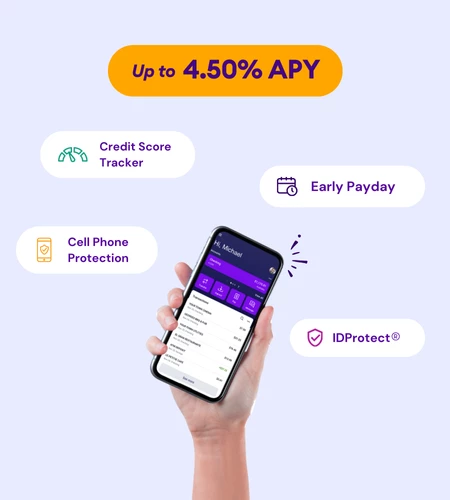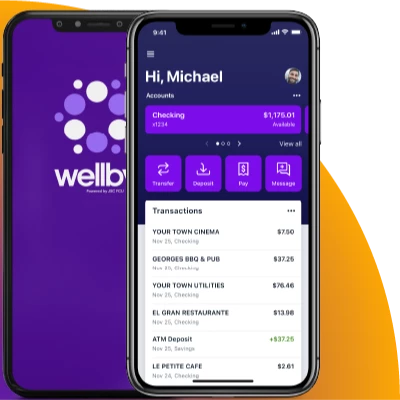Recognizing & Avoiding Scams
Learn the red flags to watch out for to ensure you don’t become a target of scammers.
Spot Common Scams and Their Tactics
Knowing how to recognize a scam can help prevent scammers from getting your financial information or gaining access to your accounts and funds. Learn these common red flags and how they're used in the most frequent scams to protect yourself from wrongdoers.
- Scammers will try to gain your trust by claiming to be from well-known businesses, organizations, or a known contact.
- Scammers will often request their verification methods through third-party websites or ask you to call fake numbers they provide to you.
- Often, scammers will create a sense of urgency to try and force you to make snap decisions without thinking.
Wellby is Committed to Protecting Your Privacy
Wellby team members will never call and ask you for login credentials or personally identifiable information (PII), and we will never perform a test charge to your card. To further protect yourself, please never provide PII details via unsecured sources like social media. If you believe you have received a spoofed call or your identity has been compromised, please call our contact center at (281) 488-7070.
For more information, please see our privacy policy.
FBI Consumer Alerts
For an up-to-date list of trending fraud scams or to file a complaint directly with the FBI if you have been a victim of a fraudulent scam, visit the Internet Crime Complaint Center.
Phishing and Spoofing Scams
Phishing is a type of online scam that targets potential victims by sending them an email or text message pretending to be a well-known source; examples include mortgage companies, service providers, government organizations like the IRS, and even Wellby.
They’ll often claim something is wrong with your account, or you are being charged additional fees and then request that you log into your account via a link they provide. This fraudulent site will then record and steal your information and use it to open new accounts in your name or steal funds from your existing accounts.
“Spoofing” scams are usually paired with phishing attempts. Spoofing is when a potential scammer uses fake phone numbers or email addresses that appear to be from a legitimate source to confuse their victims into thinking Wellby or other financial institutions are contacting them.
How to Recognize Phishing and Spoofing Scams
- The email may come from similar, yet fake email accounts such as @wellby-financial.com or @wellby.financial.com instead of the correct @wellbyfinancial.com.
- The message you receive may claim there is suspicious activity, failed log-in attempts, or fines tied to your account, and therefore your account has been placed on hold until you resolve the issue. This is meant to create urgency and cause you to act without thinking.
- The link or number they provide to sign in is a third-party website or phone number not associated with the organization they came to be.
How to Avoid Phishing and Spoofing Scams
- Do not respond to the email, text, or phone message you receive from suspicious sources. If you’re not sure a message is legitimate, call or visit your local Wellby branch and speak to a team member about the message you have received.
- Do not click on any website or links within the email or message you receive. Visiting these websites can install spyware on your computer that could attempt to steal your financial and personal information or passwords.
- Delete fraudulent messages to prevent accidentally clicking links in the future.
Bitcoin & Cryptocurrency Scams
Another common scam is known as the “Bitcoin Scam.” Scammers will contact people using common scam practices, such as blackmail, impersonation, lottery winnings, or romance, to get their victims to withdraw large amounts of cash from checking or savings accounts and deposit those funds into Bitcoin ATMs.

These ATMs are used to exchange cash for bitcoins which are then transferred directly into a digital wallet, in this case, a wallet owned by the scammer.
By claiming to be from a legitimate organization or well-known people, such as Wellby, the Federal Reserve, or a loved one, they will attempt to manipulate their victims into believing their funds are in danger or they owe money for fines.
Threats of legal action are often used to create a sense of urgency or scare their victims into acting without thinking.
How to Recognize Cryptocurrency Scams
- The scammer will ask you to make payments to cryptocurrency ATMs or provide payment via digital codes. They will offer to walk you through the process step by step while reminding you of the urgency in which you need to complete their instructions to avoid consequences.
- They request payments be made by transferring funds to a third-party account, provide a QR code to make the payment, or ask you to provide your account information to “make the payment directly” either over the phone or via email.
- Posing as remote-in tech support for well-known tech companies, scammers ask to access your computer and install a keylogger app, then ask you to log in to your account. They utilize the access to initiate transfers to cryptocurrency ATMs.
- Financial institutions, utility companies, government organizations, or any other provider will never demand payment in bitcoin or any other cryptocurrency.
How to Avoid Cryptocurrency Scams
- Do not respond to the email, text, or phone message you receive from suspicious sources. If you’re not sure if a message is legitimate, call or visit your local Wellby branch and speak to a team member about the message you have received.
- Do not click on any website, links, or QR codes. If you have never met or spoken to this person before, ignore their instructions completely. Following any of their instructions could put your personal or financial information at risk.
- Do not provide any personal or financial information. Ignore or delete the message or phone call completely to prevent any chance that your information could fall into the wrong hands.
Search Ad Malvertising
Phishing and Malware Campaigns
In a Malvertising scam, Fraudsters exploit common online behavior, such as searching for a website by name. For example, you open a browser and search for a sign-in or login page, such as “Wellby Online,” “Wellby Financial Login” or other variations.
The first search result that appears is a fake ad for Wellby Online Banking or the Wellby login page. If you click on the ad, you will think you are accessing our legitimate online banking login and input your login credentials.
However, the fraudster receives your credentials in real-time, inputs them on the legitimate Wellby online banking site, and accesses the account to send out bill payments or ACH drafts to a fraudulent account.
How to Protect Yourself from Malvertising Scams
- Do not use search engines to locate our online banking website.
- Instead, log in on the Wellby Mobile App, or if using a browser, type the secure.wellbyfinancial.com URL in its entirety. A helpful tip: save a browser bookmark for the online banking site.
- Set up alerts for your account. Watch our Tutorial on Setting Alerts.
- Keep a close eye on any suspicious debit activity on your account.
What to Do if You Suspect Fraudulent Activity on Your Account
- Change your online banking password immediately. You can change your password within your Settings by selecting Security.
- Contact Wellby at (281) 488-7070, visit a branch, or send a secure message in the Wellby Mobile App or online banking portal.
- Scan your computer for viruses and malware.
Identity Theft Recovery Services
All Wellby members with a savings account receive complimentary identity recovery services. If you suspect identity fraud, a specialist is standing by to help.






